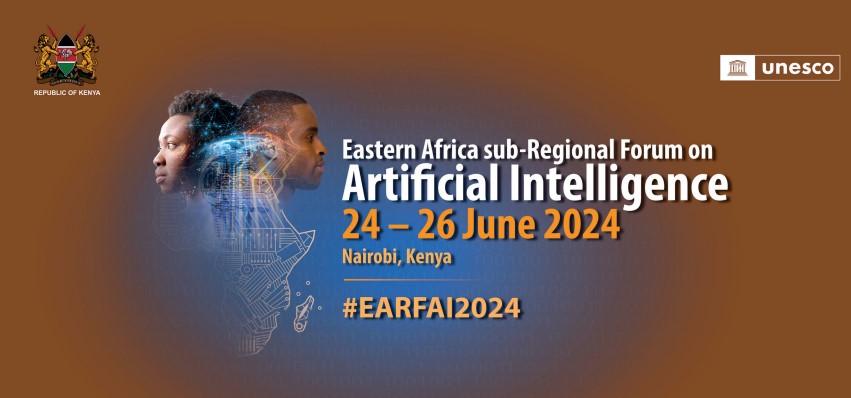Kenya was granted the rights to host the Eastern Africa Regional Forum on Artificial Intelligence (EARFAI) by member states, among other international stakeholders in Artificial Intelligence (AI).
Themed harnessing AI for sustainable development in Eastern Africa: Governance, Ethics, Capacities, and Partnerships, the forum aims to examine the status of AI development and governance in Eastern Africa and identify capacity and institutional gaps in AI.
In a brief to organizers of the event scheduled in Nairobi from June 24 to 26, 2024, the United Nations Educational, Scientific and Cultural Organization (UNESCO) affirmed its commitment to playing a leading role in facilitating international cooperation and supporting collaborative efforts to shape the ethical development of AI.
The recommendation on the ethics of Artificial Intelligence which was adopted by UNESCO member states in November 2021 is the first global normative instrument that provides a basis to make AI systems work for the good of humanity, Individuals, societies and contribute to the environment and ecosystems and gender equality.
The recommendation translates how relevant policy action offers pathways for the realization of the ethical framework on the universal principles and values with specific chapters on education, culture, labour, well-being, gender equality, communication and information among others.
The government of Kenya through the Ministry of Education and the Ministry of Information, Communications and the Digital Economy are spearheading organization of the forum concurrently with UNESCO and other stakeholders in AI.
Artificial intelligence technologies have been adopted and continue to grow exponentially in Africa especially among the youth who comprise 70 percent of the continents population.
AI models for both language and image have capitalized on computer resources to overcome physical and digital boundaries raising critical questions on the technology’s capability on how to balance the potential possibilities and risks posed by the noble transformative innovation. Recent developments have made obvious the need for an ethical and multi-stakeholder approach from the start of the AI system project lifecycle to identify, assess and respond to potential harms, while weighing the benefits not just individually but also for the public good, before it is released to the public on a large scale.
AI opens many new possibilities with transformative implications for how we learn, work, innovate, communicate, find and synthesize information.
However, while AI models offer several opportunities including facilitating content creation and personalization, they may also be associated with potential harms on an equally large scale.
These developments are fueling debate about the opportunities they present and the risks they pose to education, scientific research, peace and security, creativity, freedom of information and opinion, digital divide, and jobs among other areas, and their potential negative impacts on cultural diversity and cross-cultural interactions.
For Africa, these developments have important implications. Most of the AI systems that are now widely in use in African countries are mainly produced outside the continent, and often rely on data that does not represent the diversity of African culture, identity, languages, traditions, and indigenous knowledge.
The forum will adopt an outcome statement with actionable recommendations for the development of AI in Eastern Africa, as well as its ethical governance and use of AI in Eastern Africa, in alignment with the continental strategy on AI.
By Joseph Kamolo Mutua





